Lida Group Sets a New Benchmark for Rapid Deployment with Its High-Quality Mobile Building Worker Dormitories
2025-Sep-02 17:37:17
By Admin
Introduction
In the global construction industry, the demand for efficient, safe, and comfortable accommodation for on-site workers has long been a critical yet often underserved need. Construction projects—whether large-scale infrastructure developments, commercial building ventures, or residential complexes—require rapid mobilization of labor, and with that comes the challenge of providing suitable living quarters quickly without compromising on quality or safety. Traditional on-site dormitory construction, which relies on brick-and-mortar methods, is time-consuming, resource-intensive, and inflexible, often leading to delays in project timelines and subpar living conditions for workers. This gap has created an opportunity for innovative solutions, and Lida Group, a leading provider of prefabricated and modular building systems, has stepped forward to redefine industry standards with its high-quality mobile building worker dormitories.
Lida Group’s mobile dormitories represent a paradigm shift in temporary worker accommodation, combining rapid deployment capabilities with uncompromising quality, safety, and sustainability. Unlike conventional dormitories that take weeks or even months to construct, these modular units can be manufactured off-site, transported to the project location, and assembled in a matter of days—significantly reducing downtime and enabling construction teams to start work sooner. Moreover, the dormitories are designed to meet or exceed global safety and comfort standards, addressing longstanding concerns about worker welfare in the construction sector. This article explores how Lida Group has established a new benchmark for rapid deployment in worker accommodation, examining the design principles, manufacturing processes, technological innovations, and real-world applications that set its mobile dormitories apart.
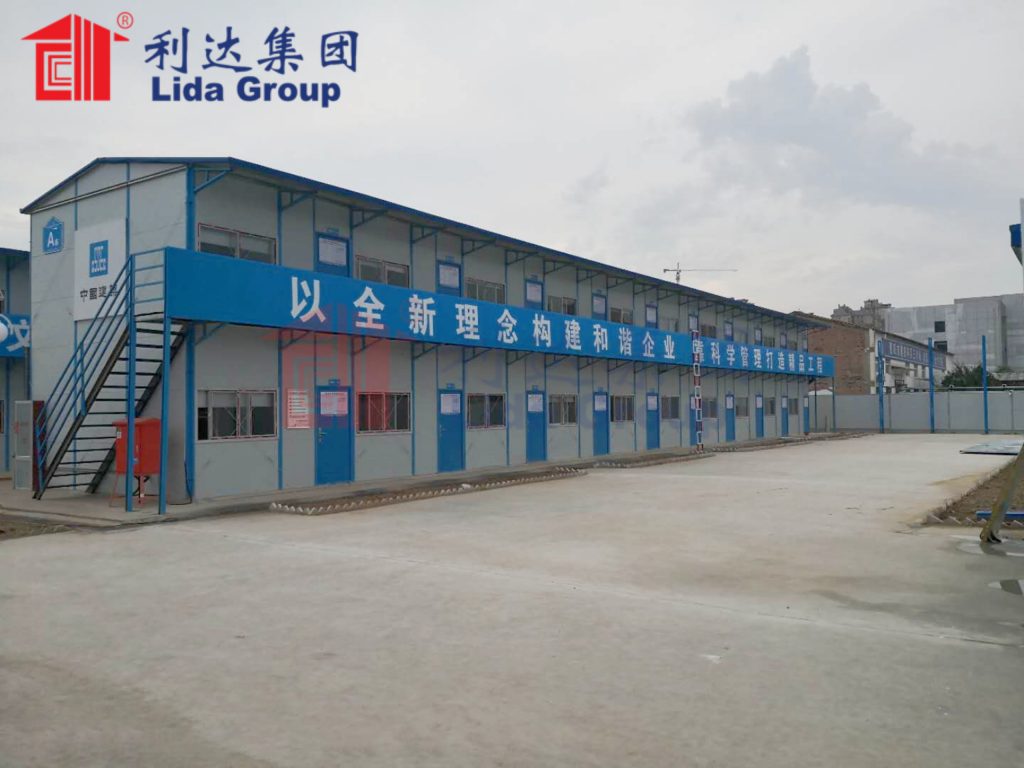
The Industry Context: Challenges in Traditional Worker Accommodation
To understand the significance of Lida Group’s innovation, it is essential to first examine the limitations of traditional worker accommodation in the construction industry. Historically, construction companies have relied on two primary approaches to housing workers: on-site construction of temporary dormitories using brick, concrete, and wood, or the use of low-quality, prefabricated units that prioritize cost over comfort and safety. Both methods present significant drawbacks.
On-site construction of temporary dormitories is labor-intensive and time-consuming. It requires sourcing local materials, hiring construction crews for the dormitories themselves, and adhering to local building codes—all of which can delay the start of the main construction project. Additionally, these structures are often poorly insulated, lack proper ventilation, and offer limited amenities, leading to discomfort for workers and potential health risks. In regions with extreme weather conditions, such as high temperatures or heavy rainfall, these dormitories can become uninhabitable, further disrupting project timelines.
Low-quality prefabricated units, while faster to deploy than on-site construction, often compromise on safety and durability. Many are made from substandard materials that are prone to damage during transportation or use, and they may not meet fire safety, structural integrity, or hygiene standards. These units also tend to be cramped, with little privacy or storage space, leading to low worker morale and productivity. Furthermore, they are often not designed for reuse, contributing to construction waste and environmental harm.
The global construction industry’s growing focus on sustainability, worker welfare, and project efficiency has made these traditional approaches increasingly untenable. Governments and regulatory bodies in many countries are implementing stricter standards for worker accommodation, mandating better living conditions, safety features, and environmental performance. At the same time, construction companies are under pressure to reduce project timelines and costs, making rapid-deployment solutions more attractive than ever. It is within this context that Lida Group’s mobile building worker dormitories have emerged as a game-changing solution.
Lida Group’s Mobile Building Worker Dormitories: Design Principles and Core Features
Lida Group’s mobile worker dormitories are designed around three core principles: rapid deployment, uncompromising quality, and worker-centric comfort. Every aspect of the units—from their modular design to their material selection and amenities—is engineered to address the limitations of traditional accommodation while meeting the evolving needs of the construction industry.
Modular Design for Rapid Deployment
The cornerstone of Lida Group’s mobile dormitories is their modular design. Unlike traditional prefabricated units that are often assembled as single, rigid structures, Lida’s dormitories are composed of standardized, interchangeable modules that can be manufactured in a controlled factory environment and then transported to the construction site for quick assembly. Each module is designed to fit seamlessly with others, allowing for flexible configuration based on the size of the workforce and the available space on-site.
The manufacturing process takes place in Lida Group’s state-of-the-art factories, where precision engineering and quality control measures ensure consistency and reliability. Modules are constructed using advanced techniques such as automated welding, pre-installed electrical and plumbing systems, and integrated insulation—all of which reduce the need for on-site work. Once manufactured, the modules are transported to the project location via truck, container ship, or rail, depending on the distance. On-site assembly is a streamlined process that typically takes 3–7 days for a standard dormitory complex, compared to 4–8 weeks for traditional on-site construction. This rapid deployment capability enables construction companies to mobilize workers faster, reduce project delays, and adapt to changing workforce needs with ease.
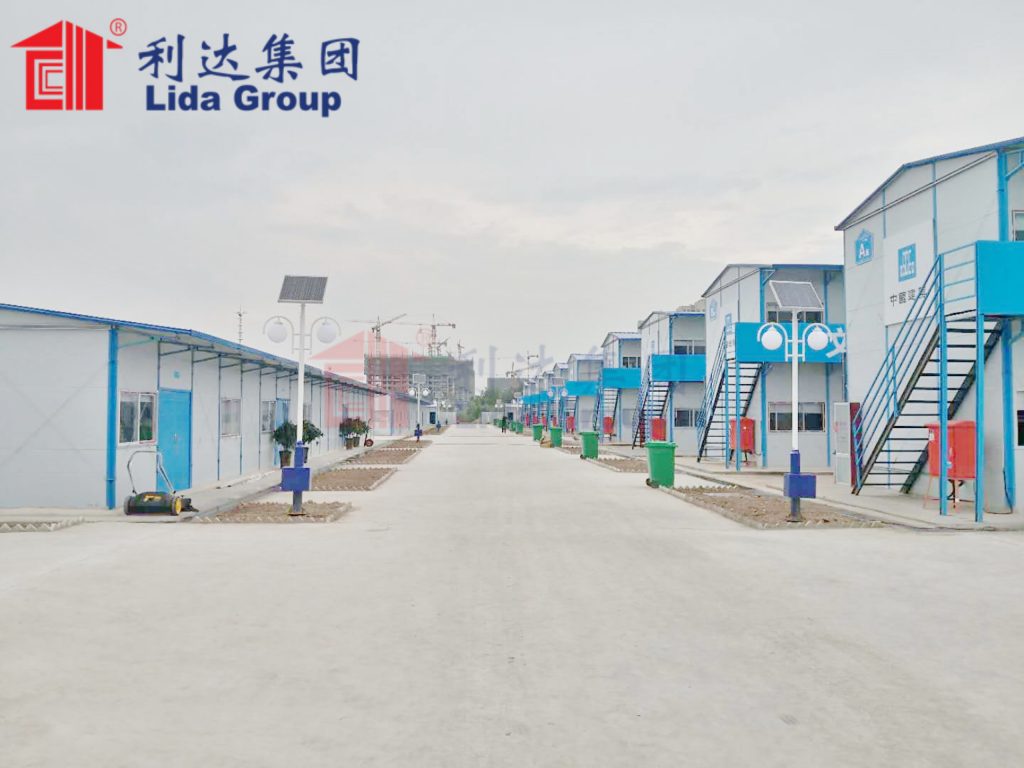
High-Quality Materials and Structural Integrity
Lida Group places a strong emphasis on quality and durability, using only premium materials in the construction of its mobile dormitories. The structural framework of the modules is made from high-strength steel, which provides exceptional stability and resistance to extreme weather conditions, including high winds, heavy snow, and seismic activity. The steel frame is treated with anti-corrosion coatings to prevent rust and extend the lifespan of the units, ensuring they can be reused across multiple projects.
The exterior cladding of the dormitories is composed of lightweight yet durable materials such as fiber-reinforced polymer (FRP) or insulated metal panels (IMPs). These materials offer excellent insulation properties, reducing heat transfer and maintaining a comfortable internal temperature year-round. They are also fire-resistant, water-proof, and easy to maintain, addressing key safety and durability concerns. The roof is designed to withstand heavy rainfall and snow loads, with integrated drainage systems to prevent water accumulation.
Internally, the dormitories feature high-quality finishes that prioritize both comfort and durability. Flooring is made from wear-resistant materials such as vinyl or laminate, which are easy to clean and maintain. Walls are insulated and soundproofed to reduce noise transmission between rooms, enhancing privacy and comfort for workers. Windows are double-glazed to improve insulation and reduce energy consumption, while also providing ample natural light to create a more pleasant living environment.
Worker-Centric Comfort and Amenities
Recognizing that worker welfare directly impacts productivity and morale, Lida Group has designed its mobile dormitories to prioritize comfort and functionality. The units are available in a range of configurations, including single-occupancy, double-occupancy, and multi-occupancy rooms, to accommodate different workforce sizes and preferences. Each room is designed to maximize space, with built-in beds, storage cabinets, and desks.
Common areas are an integral part of the dormitory design, fostering a sense of community among workers. These include shared kitchens equipped with stoves, refrigerators, and microwaves, allowing workers to prepare their own meals. Dining areas provide space for socializing, while laundry facilities with washers and dryers ensure convenience. Some configurations also include recreational areas with seating, televisions, or reading corners, giving workers a space to relax after a long day.
Hygiene and sanitation are top priorities, with well-designed bathrooms featuring showers, toilets, and sinks. The plumbing systems are designed to be efficient and reliable, with water-saving fixtures to reduce environmental impact. Ventilation systems ensure adequate air circulation, preventing the buildup of moisture and improving indoor air quality. In regions with extreme temperatures, heating and cooling systems are installed to maintain a comfortable living environment year-round.
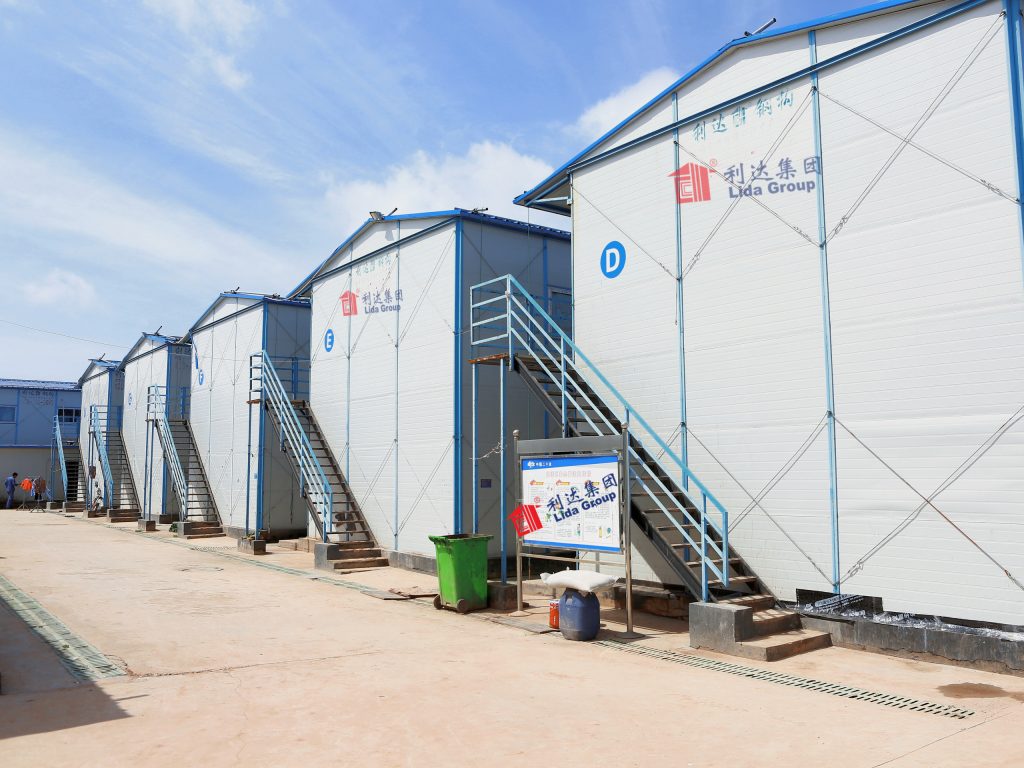
Safety and Compliance
Lida Group’s mobile dormitories are built to meet or exceed global safety standards and regulatory requirements. The structural design undergoes rigorous testing to ensure compliance with local building codes, including load-bearing capacity, fire resistance, and seismic performance. Fire safety features include smoke detectors, fire extinguishers, and fire-resistant materials, with clear evacuation routes and emergency lighting to ensure worker safety in the event of a fire.
Electrical systems are installed by certified professionals and designed to prevent short circuits and electrical fires. They include circuit breakers, grounding systems, and energy-efficient lighting to reduce energy consumption. Plumbing systems are leak-proof and designed to prevent water damage, with regular maintenance checks incorporated into the units’ lifecycle.
In addition to meeting safety standards, Lida’s dormitories comply with labor regulations related to worker accommodation, including minimum space requirements, ventilation standards, and access to amenities. This ensures that construction companies using the units avoid regulatory penalties and demonstrate a commitment to worker welfare.
Technological Innovation: Driving Efficiency and Sustainability
Lida Group’s mobile worker dormitories are not just modular and well-designed—they also incorporate cutting-edge technology to enhance efficiency, sustainability, and user experience. The company invests heavily in research and development to integrate innovative solutions into its products, setting itself apart from competitors and further solidifying its position as an industry leader.
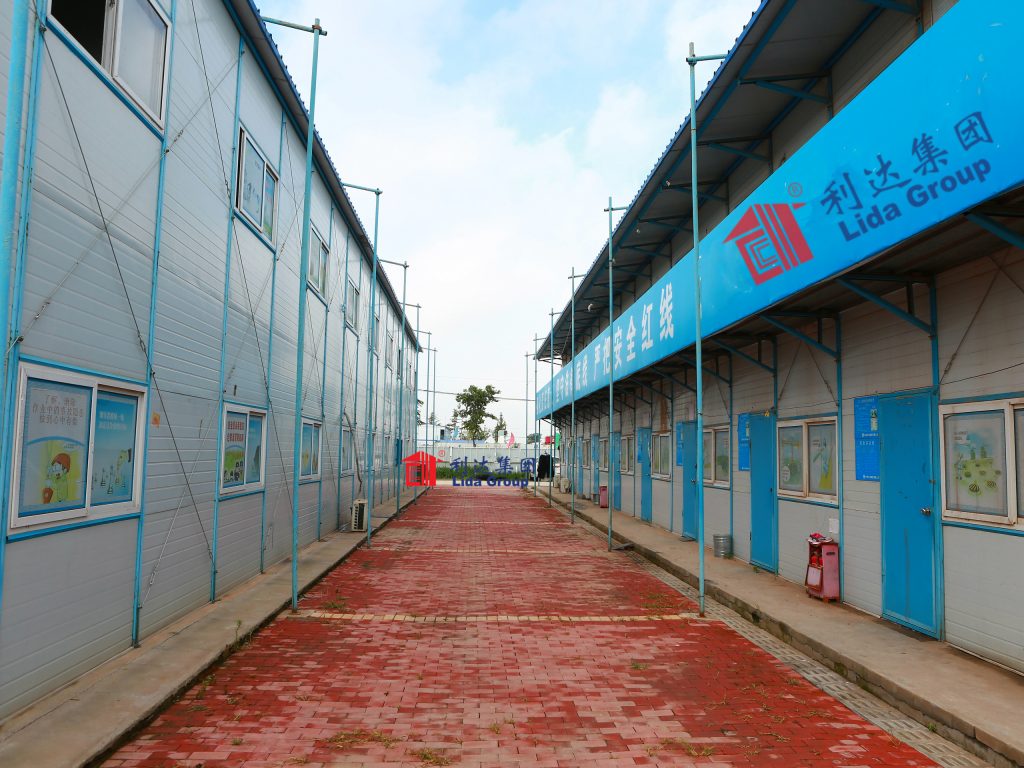
Smart Building Technology
Lida Group has embraced smart building technology to optimize the operation and maintenance of its mobile dormitories. Each unit is equipped with a centralized control system that monitors and manages key functions such as lighting, heating, cooling, and ventilation. Sensors throughout the dormitory detect occupancy, temperature, and humidity, adjusting systems automatically to conserve energy. For example, lights turn off when a room is unoccupied, and heating/cooling systems adjust based on ambient temperature, reducing energy consumption by up to 30% compared to traditional dormitories.
The control system is accessible via a mobile app or web portal, allowing project managers to monitor the dormitory’s performance in real-time. They can track energy usage, identify maintenance issues, and make adjustments remotely, improving operational efficiency and reducing downtime. Workers can also use the app to control certain features in their rooms, such as lighting or temperature, enhancing their living experience.
Sustainable Manufacturing and Materials
Sustainability is a key focus for Lida Group, and its mobile dormitories are designed to minimize environmental impact throughout their lifecycle. The modular manufacturing process reduces waste by up to 50% compared to traditional construction, as materials are precisely cut and measured in a factory setting, and excess materials can be recycled or reused. The company also prioritizes the use of eco-friendly materials, such as recycled steel, low-VOC (volatile organic compound) paints, and sustainable wood products, to reduce the carbon footprint of the units.
In addition to sustainable manufacturing, the dormitories themselves are designed to be energy-efficient and environmentally friendly. The insulation materials used in the walls, roof, and floors reduce heat loss, lowering the demand for heating and cooling. Solar panels can be installed on the roof to generate renewable energy, powering lighting and small appliances and further reducing reliance on fossil fuels. Water-saving fixtures, such as low-flow showers and toilets, reduce water consumption by up to 40%, making the units suitable for use in regions with water scarcity.
Lida Group also emphasizes the recyclability and reusability of its mobile dormitories. Unlike traditional temporary dormitories that are often demolished after use, Lida’s units can be disassembled, transported to a new location, and reassembled for subsequent projects. This reduces construction waste and extends the lifespan of the units, making them a more sustainable alternative to disposable accommodation.
Digital Twin Technology
To further enhance the design and performance of its mobile dormitories, Lida Group uses digital twin technology. A digital twin is a virtual replica of a physical asset, created using 3D modeling and real-time data. Lida’s engineering team develops digital twins of its dormitory modules during the design phase, allowing them to simulate performance under different conditions—such as extreme weather, varying occupancy levels, and different configurations. This enables the team to identify potential issues before manufacturing, optimize the design for efficiency and safety, and reduce the need for costly rework.
Once the dormitories are deployed, the digital twin continues to be a valuable tool. Sensors in the physical units collect real-time data on energy usage, temperature, and structural performance, which is fed into the digital twin. Project managers can use this data to monitor the dormitory’s performance, predict maintenance needs, and make data-driven decisions to improve efficiency. This integration of digital and physical systems ensures that Lida’s dormitories are not just innovative but also continuously optimized for performance.
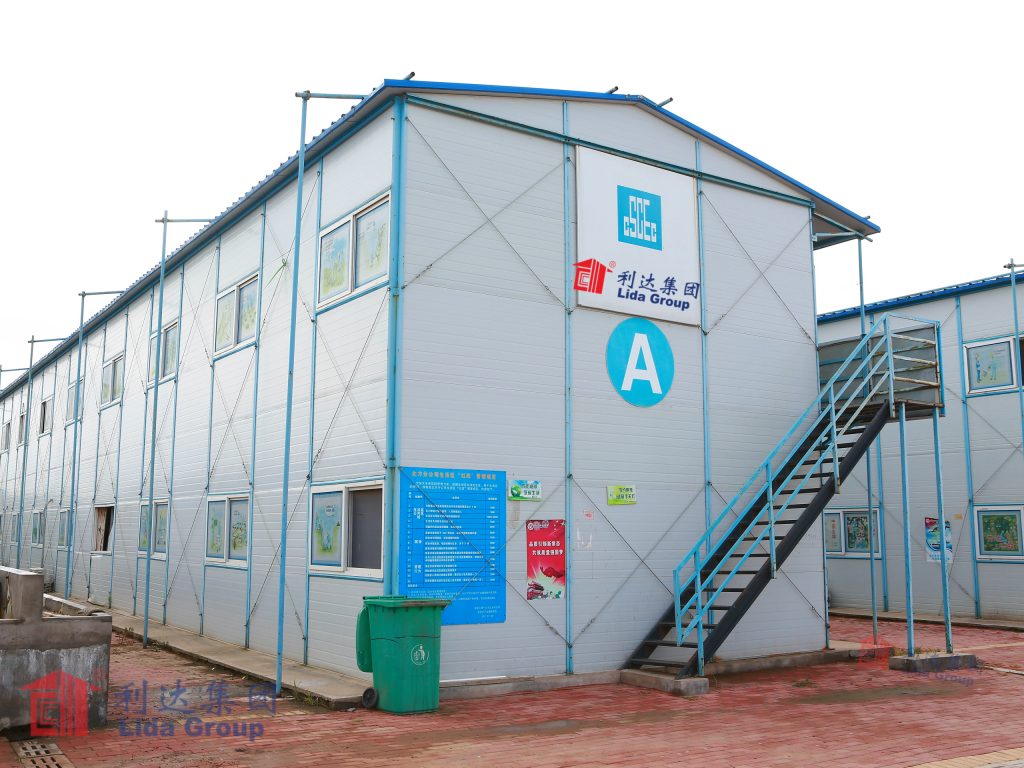
Real-World Applications: Case Studies Demonstrating Rapid Deployment and Impact
The effectiveness of Lida Group’s mobile building worker dormitories is best illustrated through real-world applications. Across the globe, construction companies and project managers have adopted these units to address their worker accommodation needs, experiencing significant improvements in deployment speed, worker welfare, and project efficiency. The following case studies highlight the diverse applications and tangible benefits of Lida’s dormitories.
Case Study 1: Large-Scale Infrastructure Project in the Middle East
A major construction company was awarded a contract to build a new highway system in the Middle East, requiring the mobilization of over 500 workers. The project was on a tight timeline, and the company needed to provide accommodation for workers within two weeks to avoid delays. Traditional on-site construction of dormitories was estimated to take six weeks, which would have pushed back the start of the main project. Instead, the company turned to Lida Group’s mobile dormitories.
Lida Group manufactured 100 modular dormitory units in its factory in China, each configured to accommodate five workers. The units were transported to the project site via container ship, arriving within 10 days. On-site assembly took just five days, with a small team of Lida’s technicians overseeing the process. The dormitory complex included 100 sleeping units, 20 shared bathrooms, 10 shared kitchens, and five recreational areas. The units were equipped with air conditioning to combat the region’s high temperatures, as well as solar panels to reduce energy costs.
The rapid deployment of the dormitories allowed the construction company to start work on schedule, avoiding costly delays. Workers reported high levels of satisfaction with the accommodation, citing the comfortable beds, adequate storage, and clean facilities. The company also noted a 20% improvement in worker productivity, attributed to better living conditions. After the project was completed, the dormitories were disassembled and transported to another construction site in the region, demonstrating their reusability and sustainability.
Case Study 2: Residential Construction Project in Europe
A residential construction company in Europe was building a new housing development and needed to accommodate 150 workers for a 12-month period. The project site was located in a densely populated area, with limited space for on-site construction of dormitories. Additionally, local regulations mandated strict safety and environmental standards for worker accommodation, including energy efficiency and waste reduction requirements.
Lida Group provided a custom-designed dormitory complex consisting of 30 modular units, including single and double-occupancy rooms, shared kitchens, bathrooms, and laundry facilities. The units were designed to be compact yet comfortable, maximizing the use of available space. They were manufactured in Lida’s European factory, reducing transportation costs and carbon emissions. On-site assembly took three days, with the units being crane-lifted into place and connected to local utility services.
The dormitories met all local safety and environmental standards, with high levels of insulation, energy-efficient lighting, and water-saving fixtures. The company reported a 25% reduction in energy costs compared to traditional dormitories, and the modular design allowed for easy expansion as the workforce grew. Workers appreciated the quiet, well-ventilated rooms and the convenience of on-site amenities, leading to lower turnover rates and higher morale. At the end of the project, the units were sold to another construction company, further extending their lifecycle.
Case Study 3: Disaster Relief Housing in Asia
In the aftermath of a natural disaster in Asia, a humanitarian organization needed to provide temporary accommodation for construction workers involved in relief efforts. The region had limited infrastructure, and traditional construction methods were not feasible due to the lack of local materials and labor. The organization required accommodation that could be deployed quickly, withstand harsh weather conditions, and provide a safe and comfortable living environment for workers.
Lida Group donated 50 mobile dormitory units to the relief effort, which were manufactured and transported to the disaster zone within a week. The units were designed to be lightweight and easy to assemble, requiring minimal tools and labor. They were equipped with reinforced steel frames to withstand strong winds and heavy rainfall, as well as waterproof cladding to prevent water damage. Each unit accommodated four workers, with built-in beds, storage, and ventilation systems.
The rapid deployment of the dormitories allowed relief workers to start rebuilding efforts immediately, accelerating the recovery process. The units proved to be durable and reliable, withstanding subsequent storms and providing a safe haven for workers. The humanitarian organization praised the units for their practicality and sustainability, noting that they could be reused in future disaster relief efforts.
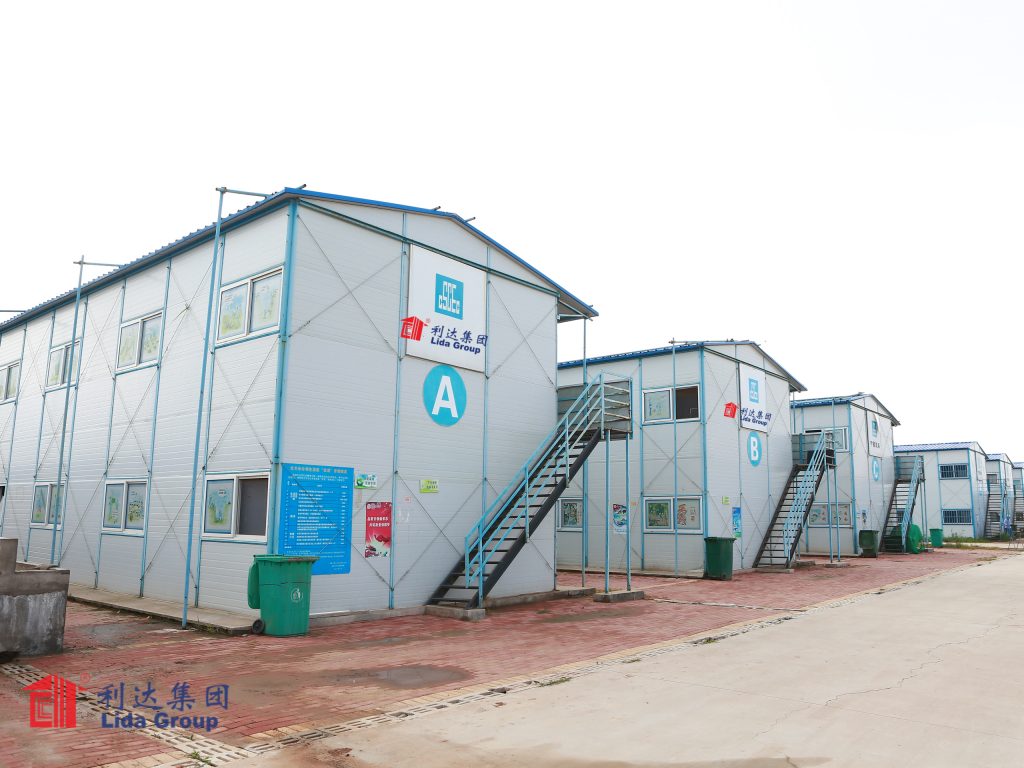
Competitive Advantage: Why Lida Group Stands Out in the Market
In a growing market for modular worker accommodation, Lida Group has established a clear competitive advantage through its commitment to quality, innovation, and customer-centricity. The company’s mobile dormitories outperform competitors in several key areas, making them the preferred choice for construction companies worldwide.
Speed of Deployment
Lida Group’s modular design and streamlined manufacturing process enable faster deployment than any other solution in the market. While traditional on-site construction takes weeks or months, and competitors’ prefabricated units often require 2–3 weeks for assembly, Lida’s dormitories can be deployed in as little as 3–7 days. This speed is a critical differentiator for construction companies working on tight deadlines, as it allows them to mobilize workers quickly and avoid costly delays.
Quality and Durability
Unlike many competitors that cut corners on materials to reduce costs, Lida Group uses only premium materials and adheres to strict quality control standards. The company’s factories are ISO-certified, and every module undergoes rigorous testing before leaving the factory. This commitment to quality ensures that Lida’s dormitories are durable, reliable, and able to withstand the rigors of construction site use. Competitors’ units often suffer from damage during transportation or use, leading to maintenance issues and reduced lifespan, but Lida’s units are designed for long-term use and reuse.
Customization and Flexibility
Lida Group offers a high degree of customization, allowing customers to tailor the dormitories to their specific needs. Whether a project requires single-occupancy rooms for skilled workers, multi-occupancy units for laborers, or additional amenities such as offices or medical facilities, Lida can design and manufacture modules to meet those requirements. This flexibility sets Lida apart from competitors that offer only standard, one-size-fits-all units, making it easier for construction companies to adapt to changing workforce needs.
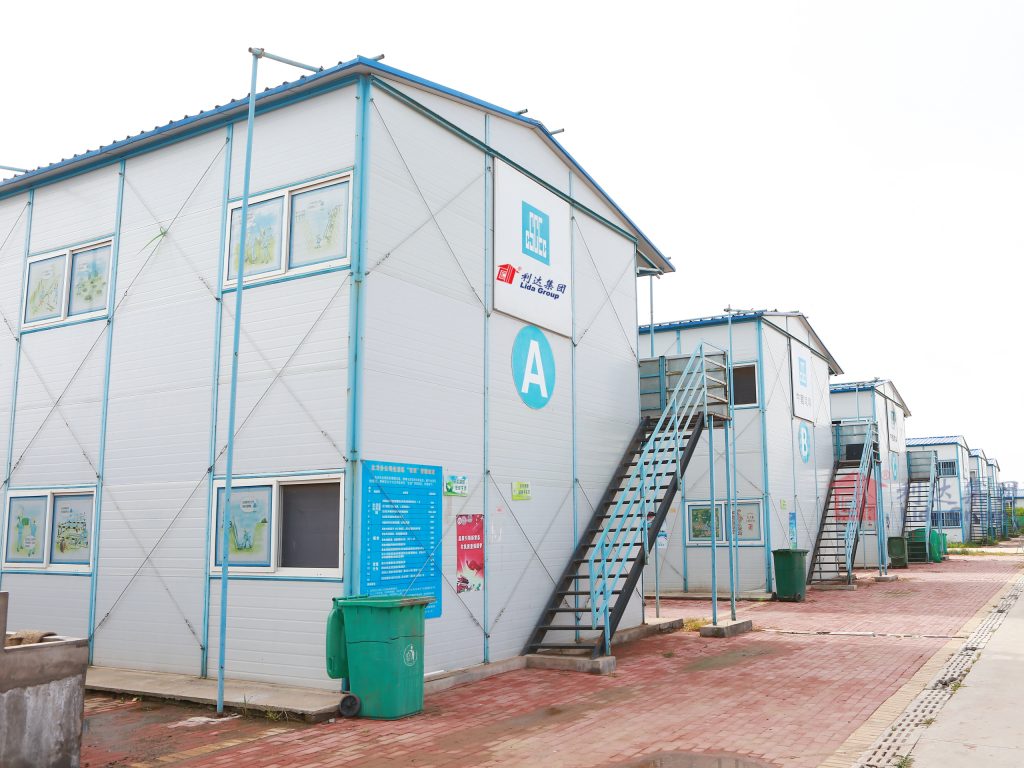
Sustainability
Lida Group’s focus on sustainability is another key competitive advantage. The company’s modular manufacturing process reduces waste, and its use of eco-friendly materials and energy-efficient technologies aligns with the global construction industry’s shift toward greener practices. Unlike competitors who may treat sustainability as an afterthought, Lida integrates it into every stage of the dormitory lifecycle—from design and manufacturing to deployment and end-of-use. For example, while some modular accommodation providers offer limited recycling options, Lida guarantees that over 85% of the materials in its dormitories can be recycled or repurposed at the end of their lifecycle. This commitment not only reduces environmental impact but also provides cost savings for customers, as recycled materials lower replacement costs for future projects. Additionally, Lida’s investment in solar and other renewable energy integrations gives it an edge in markets where environmental regulations are strict, such as the European Union and California, where construction companies face penalties for high carbon footprints.
Customer Support and After-Sales Service
Lida Group’s competitive advantage extends beyond its product offerings to its customer-centric support system. The company provides end-to-end assistance, from initial design consultation to on-site assembly and ongoing maintenance. A dedicated team of engineers and project managers works closely with customers to understand their specific needs, offering customized solutions that align with project timelines, budget constraints, and regulatory requirements. Unlike competitors who often provide limited after-sales support, Lida offers a comprehensive maintenance program, including regular inspections, repairs, and upgrades to ensure the dormitories remain in optimal condition throughout their use. The company also provides training for customer teams on operating the smart building systems and performing basic maintenance tasks, reducing downtime and operational costs. This level of support has earned Lida a high customer retention rate, with many construction companies returning for multiple projects.
Future Outlook: Innovations and Market Expansion
As the global construction industry continues to evolve, Lida Group is well-positioned to expand its leadership in the mobile worker accommodation market through ongoing innovation and strategic growth. The company’s focus on research and development (R&D) ensures that its products remain at the forefront of technological advancement, while its commitment to sustainability and worker welfare aligns with emerging industry trends.

Advanced Technological Integration
Lida Group plans to further enhance its smart building technology by integrating artificial intelligence (AI) and the Internet of Things (IoT) into its mobile dormitories. Future iterations of the dormitories will feature AI-powered predictive maintenance systems that can identify potential issues—such as faulty electrical components or plumbing leaks—before they cause downtime. These systems will use machine learning algorithms to analyze data from sensors in the units, enabling proactive repairs and reducing maintenance costs. Additionally, Lida is exploring the integration of renewable energy storage solutions, such as battery systems, to complement its solar panel offerings. This will allow the dormitories to operate off-grid in remote locations, expanding their applicability to infrastructure projects in areas with limited access to utility services.
Another area of focus is the development of modular units that are even more lightweight and portable, without compromising on structural integrity. Lida’s R&D team is testing advanced composite materials that offer the same strength as steel but with a 30% reduction in weight, making transportation easier and more cost-effective. These materials also have improved insulation properties, further enhancing energy efficiency.
Expansion into Emerging Markets
Lida Group aims to expand its presence in emerging markets, where rapid urbanization and infrastructure development are driving demand for efficient worker accommodation. Regions such as Southeast Asia, Africa, and Latin America are experiencing significant growth in construction activity, but traditional accommodation solutions are often inadequate. Lida’s mobile dormitories, with their rapid deployment capabilities and compliance with global safety standards, are well-suited to meet this demand. The company plans to establish local manufacturing facilities in key emerging markets, such as Vietnam and Kenya, to reduce transportation costs and shorten delivery times. These facilities will also enable Lida to customize its products to meet local cultural preferences and regulatory requirements, further strengthening its market position.
Collaboration with Industry Partners
To accelerate innovation and expand its reach, Lida Group is seeking strategic partnerships with construction companies, technology firms, and government agencies. Collaborations with technology companies will enable Lida to integrate cutting-edge solutions, such as AI and IoT, into its products more quickly. Partnerships with construction companies will provide valuable insights into on-the-ground needs, ensuring that Lida’s dormitories continue to address real-world challenges. Additionally, Lida is working with government agencies in various countries to develop standards for modular worker accommodation, positioning itself as a thought leader in the industry and helping to raise overall standards for worker welfare.
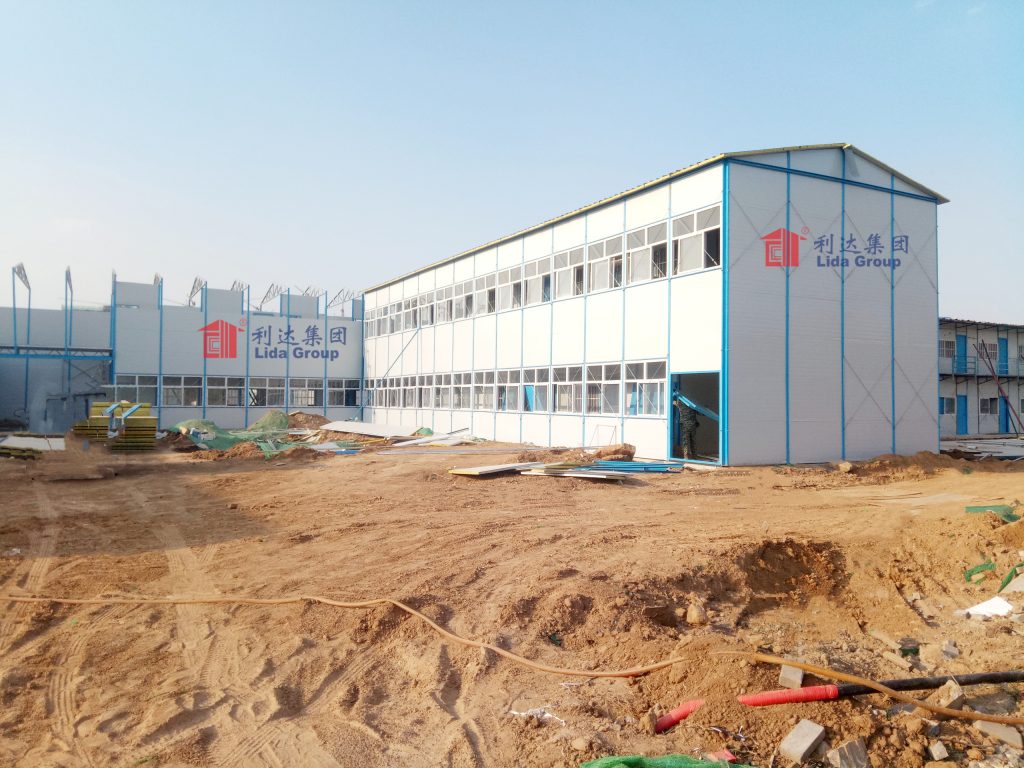
Focus on Circular Economy Principles
As the construction industry moves toward a circular economy—where resources are reused and recycled to minimize waste—Lida Group is committed to aligning its operations with these principles. The company plans to develop a take-back program for its mobile dormitories, allowing customers to return units at the end of their use for disassembly and recycling. Lida will then reuse the recycled materials in the manufacturing of new units, reducing the need for virgin materials and lowering the carbon footprint of its products. This program will not only enhance sustainability but also create a new revenue stream for the company, as recycled materials can be sold to other manufacturers.
Conclusion
Lida Group has set a new benchmark for rapid deployment in the mobile building worker dormitory market by combining innovative design, high-quality materials, advanced technology, and a commitment to worker welfare and sustainability. The company’s modular dormitories address the longstanding limitations of traditional accommodation solutions, offering construction companies a fast, flexible, and cost-effective way to house workers without compromising on safety or comfort.
Through its focus on modular design, Lida enables deployment in just days, significantly reducing project delays and allowing construction teams to mobilize quickly. Its use of premium materials and strict quality control measures ensures that the dormitories are durable, reliable, and compliant with global safety standards. The integration of smart building technology and sustainable practices further distinguishes Lida’s products, reducing energy consumption, minimizing environmental impact, and enhancing the living experience for workers.
Real-world case studies from around the globe demonstrate the tangible benefits of Lida’s dormitories, including improved worker productivity, reduced costs, and compliance with regulatory requirements. The company’s competitive advantage—built on speed, quality, customization, sustainability, and customer support—has made it a preferred choice for construction companies worldwide.
Looking ahead, Lida Group’s commitment to innovation, expansion into emerging markets, and focus on circular economy principles positions it to maintain its leadership in the industry. By continuing to adapt to evolving industry trends and customer needs, Lida is not only redefining worker accommodation but also contributing to a more efficient, sustainable, and worker-centric construction industry.
In a sector where time, cost, and worker welfare are critical, Lida Group’s mobile building worker dormitories represent more than just a product—they are a comprehensive solution that drives operational excellence and sets a new standard for the future of construction accommodation.
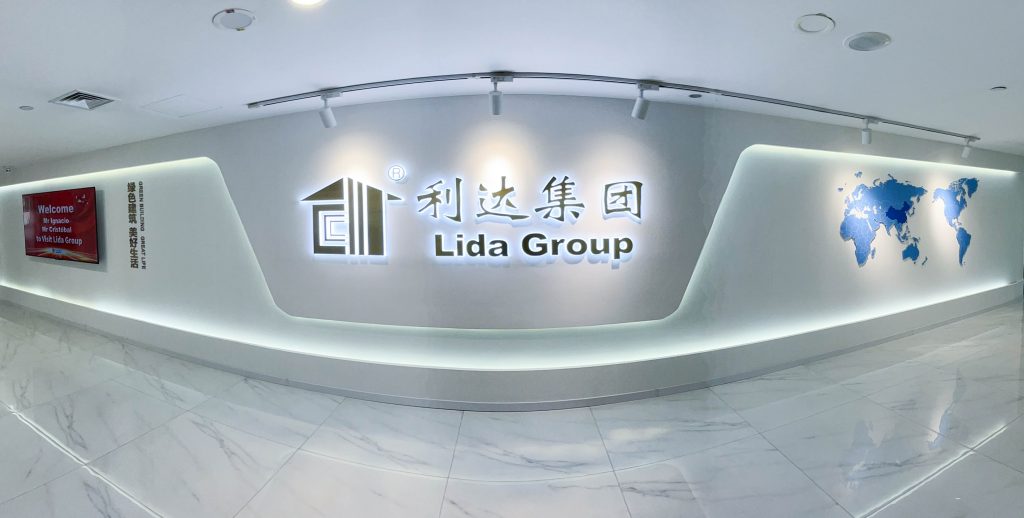
Related news
-
Cost-Effective Workforce Expansion: Lida Group's Prefab Building Approach Cuts Container House Construction Time and Budgets.
2025-08-27 17:16:22
-
Lida Group Integrates Modern Amenities into Its High-Quality Container Worker Houses Using Smart Prefab Building Techniques
2025-08-27 17:21:28
-
The Future of On-Site Accommodation: Smart Technology Integration in Lida Group's Prefab Building Container House Units.
2025-08-27 17:32:34
contact us
- Tel: +86-532-88966982
- Whatsapp: +86-13793209022
- E-mail: sales@lidajituan.com


